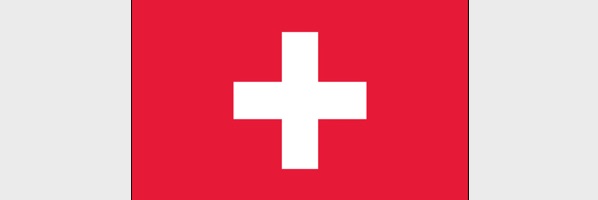Mar 5, 2021 | Freedom of Religion and Belief
Zürich, Switzerland – Less than a year ago, Valentina made the decision to switch her headscarf for a niqab.
“I feel better and safer wearing it,” she told Al Jazeera. “It is also an act of worship.”
For the 32-year-old from Switzerland, who prefers to be identified by only her first name, wearing the niqab – a veil worn by some Muslim women which covers the lower half of the face – is a personal choice.
“I wear it for myself, not as a symbol to the outside world,” she said.
But Valentina may not be able to wear the niqab for much longer.
On March 7, the Swiss will vote in a referendum that could usher in a ban on facial coverings, such as the niqab, in public.
The legislation, referred to locally as the burqa ban, does not specifically mention the facial coverings worn by Muslim women, but is largely seen to target them.
The proposed law mandates that “no one shall cover their face in public” and that “no one is permitted to force someone to cover their face based on their gender”.
There are some exceptions, such as for health reasons and traditions like a carnival.
Polls in local media outlets suggest that voters will narrowly approve the law, a move that some members of the Muslim minority believe singles them out from society.
Right-wing party pushes proposal
The initiative to ban facial coverings was launched by the Egerkinger Komitee, a group including politicians of the right-wing Swiss People’s Party (SVP) that says it organises “resistance against the claims to power of political Islam in Switzerland”.
The group argues that “free people show their face” and that “the burqa and niqab are not normal clothes”, but symbolise the oppression of women.
In 2017, the group collected the required 100,000 signatures to put the issue to a referendum, now due to take place on March 7.
For Andreas Tunger-Zanetti, a researcher on Islam at the University of Luzern and author of the book The Burqa Debate in Switzerland, the upcoming vote is about more than just clothing.
“It is about managing diversity,” he said. “This is an issue for many people in Switzerland because there are no longer the distinct identity profiles people remember from their youth.”
Tunger-Zanetti says the burqa is an easy target that represents the “threat” of diversity because it is undoubtedly associated with Islam by Swiss voters.
According to official statistics, there are approximately 380,000 Muslims living in Switzerland, about 5 percent of the population, many with roots in the Balkan region.
Official statistics on women wearing facial coverings do not exist, but Tunger-Zanetti says the numbers are low.
Last year, he conducted a survey among key figures in Switzerland’s Muslim community, asking how many women they know to be wearing a full facial covering.
“The survey revealed that there are no burqas in Switzerland,” Tunger-Zanetti said.
He said that between 21 and 37 women wear the niqab.
“It is difficult to see how this can be sold as the pretended Islamisation,” he added.
‘Criminalising women’
It is not the first time that Switzerland’s Muslim community has felt singled out by a referendum.
In 2009, voters accepted legislation, also proposed by the Egerkinger Komitee, to ban the construction of new minarets.
At the time, the Islamic Central Council of Switzerland was formed to represent the Muslim voice in the discussions around the minaret referendum. It has since become the nation’s largest Muslim civil rights group.
The organisation’s spokeswoman, Janina Rashidi, does not see a need for the proposed law on facial coverings.
“You are criminalising women for wearing something,” she said.
“I can understand that covering the face, for some people, might look strange,” she said, “but there are so many things in our society that look strange to one or the other.”
Rashidi compared the debate around the burqa to the differing opinions and preferences around face tattoos.
Rashidi said such laws reinforce the sentiments held by many Muslims of not being viewed as full members of Swiss society, despite being Swiss or having lived in the country for most of their lives.
“The radicalisation that we fear might happen is not because of some wrong perception or religious convictions,” she said, “it would be a direct result of these measures and the public discourse with a clear Islamophobic agenda.”
The Swiss government has recommended voters reject the proposal.
In January, it said in a statement that a nationwide ban would “undermine the sovereignty of the cantons, damage tourism and be unhelpful for certain groups of women”.
The government also cited the low number of people the law would apply to.
The ban has already been introduced on a local level by two cantons – Switzerland’s equivalent of states – St Gallen and Ticino.
In St Gallen, no woman has been reported or fined for covering her face since the law was introduced in 2019.
In Ticino, there have been 60 registered violations since the law was introduced in 2016, the majority of which were masked sports fans, and not women wearing the burqa or niqab.
If the ban is rejected in the referendum, a government proposal will come into force mandating facial coverings be removed for identification purposes. Funding will also be provided to women’s rights organisations.
As for Valentina, she says the vote feels personal.
“It makes me very sad because the initiative’s propaganda is based on the idea that we niqab wearers are terrorists,” she said.
“I am absolutely against terrorist organisations, and I don’t see myself as extreme but as a normal Muslim,” she said.
If the Swiss accept the ban at the polls, Valentina says she will move to Egypt, where her husband’s family is from.
“I’m not taking the niqab off,” she said

Commentaires récents